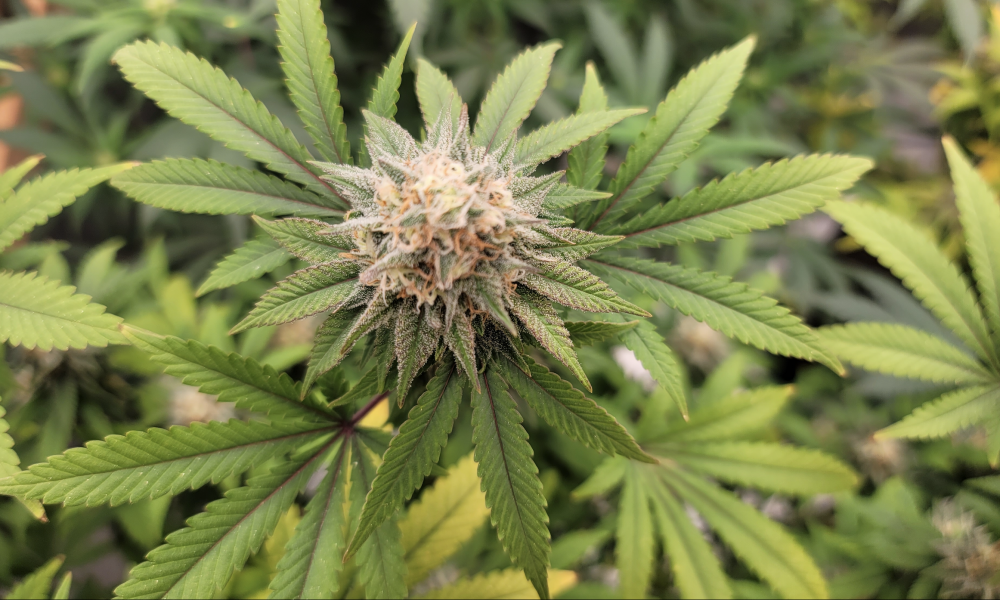As marijuana legalization began to take effect in Ohio on Thursday, Cleveland Mayor Justin M. Bibb (D) announced that the city has “modernized” its drug testing policies for applicants for city jobs, eliminating “antiquated language around pre-employment marijuana testing that has previously hindered hiring efforts.”
“The criminalization of marijuana in our state and the punitive effects it has had on education, housing, and employment opportunities have lasted far too long, but will eventually be a thing of the past—thanks to Ohioans who made their voices heard loud and clear last month when they voted to approve Issue 2,” Bibb said in a press release. “We are proud to continue leading the way by rolling out these updates, which builds on our prior marijuana reform efforts and other initiatives aimed at improving our HR policies.”
Under Cleveland’s updated pre-employment testing policy, the city will only conduct cannabis screenings for “selected positions that are identified as safety/security-sensitive, as well as positions that fall under the federal government’s Department of Transportation (DOT).”
That means testing will still be in effect for police, firefighters, emergency medical responders, port workers and any jobs that require a commercial driver’s license or involve operation of heavy equipment or mechanical tools, the mayor’s office said.
“Pre-employment screening can often times create obstacles in filling open positions by preventing otherwise qualified candidates from even applying,” the city’s director of human resources, Matt Cole, said in a statement accompanying the announcement. “These policy updates are more cost-effective and will ultimately help us widen the applicant pool for several City positions.”
The mayor’s office pointed to other jurisdictions that have adopted similar policies around drug screening prospective workers after legalizing marijuana, including in Baltimore, Washington State, Nevada and Montana. The office also cited a 2020 study indicating that “workplace performance is not related to after-work marijuana use.”
Several other states, such California and New York, provide broader employment protections for adults who legally use cannabis during off-hours and away from work.
As Cleveland.com reported, Cleveland is looking for ways to help fill more than 800 vacant positions, including 300 police jobs.
As for testing current Cleveland employees, the city announcement says the policy and procedures “is largely unchanged.” Workers are expected to be “free from the effects of alcohol and drugs, which includes marijuana, while on duty,” with disciplinary actions ranging from an offer of treatment to outright termination, the city said.
“Maintaining a drug-free workplace is needed for obvious reasons, but it’s also important for us to be cognizant of the fact that the State is still finalizing regulation, taxation, and licensing terms and processes,” said the city’s law director, Mark Griffin. “We will be keeping a keen eye on how things get sorted out in the legislature and court system, and will adapt procedures and update policy as necessary as the situation evolves in Columbus.”
While certain cannabis-related activity became legal Thursday—including personal possession, use and home cultivation of marijuana—lawmakers in the Senate and House are still considering sweeping changes to the voter-approved law, passed last month as Issue 2.
Republicans initially planned to gut the new law, but as of Wednesday, the GOP-controlled Senate abruptly reversed course. Lawmakers instead approved a revised bill that in some ways would expand the voter-approved law. It would also allow legal sales to begin sooner, permitting existing medical marijuana dispensaries to serve adult customers within as little as three months after enactment.
Under Issue 2, medical dispensaries wouldn’t be able to sell to adults until closer to nine months after enactment. Dispensaries, however, would still have a head start compared to adult-use businesses, which would need to apply for and be granted licenses.
—
Marijuana Moment is tracking more than 1,000 cannabis, psychedelics and drug policy bills in state legislatures and Congress this year. Patreon supporters pledging at least $25/month get access to our interactive maps, charts and hearing calendar so they don’t miss any developments.
Learn more about our marijuana bill tracker and become a supporter on Patreon to get access.
—
The bill now goes to the House, which is looking at a different marijuana legalization amendment proposal, filed by Rep. Jamie Callender (R). The House Finance Committee took up that legislation—which would preserve home grow and other key components of the voter-passed initiative, while making other changes opposed by advocates—in a hearing on Wednesday.
Separately, Rep. Gary Click (R) filed legislation last week that would allow individual municipalities to locally ban the use and home cultivation of cannabis in their jurisdictions and also revise how state marijuana tax revenue would be distributed by, for example, reducing funds allocated to social equity and jobs programs and instead steering them toward law enforcement training.
Rep. Cindy Abrams (R) also introduced a bill last month that would revise the marijuana law by putting $40 million in cannabis tax dollars toward law enforcement training annually.
In Cleveland, Bibb’s announcement on Wednesday highlighted his own past efforts at cannabis reform, including filing motions to expunge more than 4,000 past marijuana conviction records. “Ohio Senate Bill 288 was eventually signed into law and took effect this April,” his office said, allowing the City to move forward more efficiently and effectively with the process.”
States Where Marijuana Is Illegal Typically See Higher Rates Of Treatment Admissions, Federal Study Says
Photo courtesy of Mike Latimer.
Read the full article here

